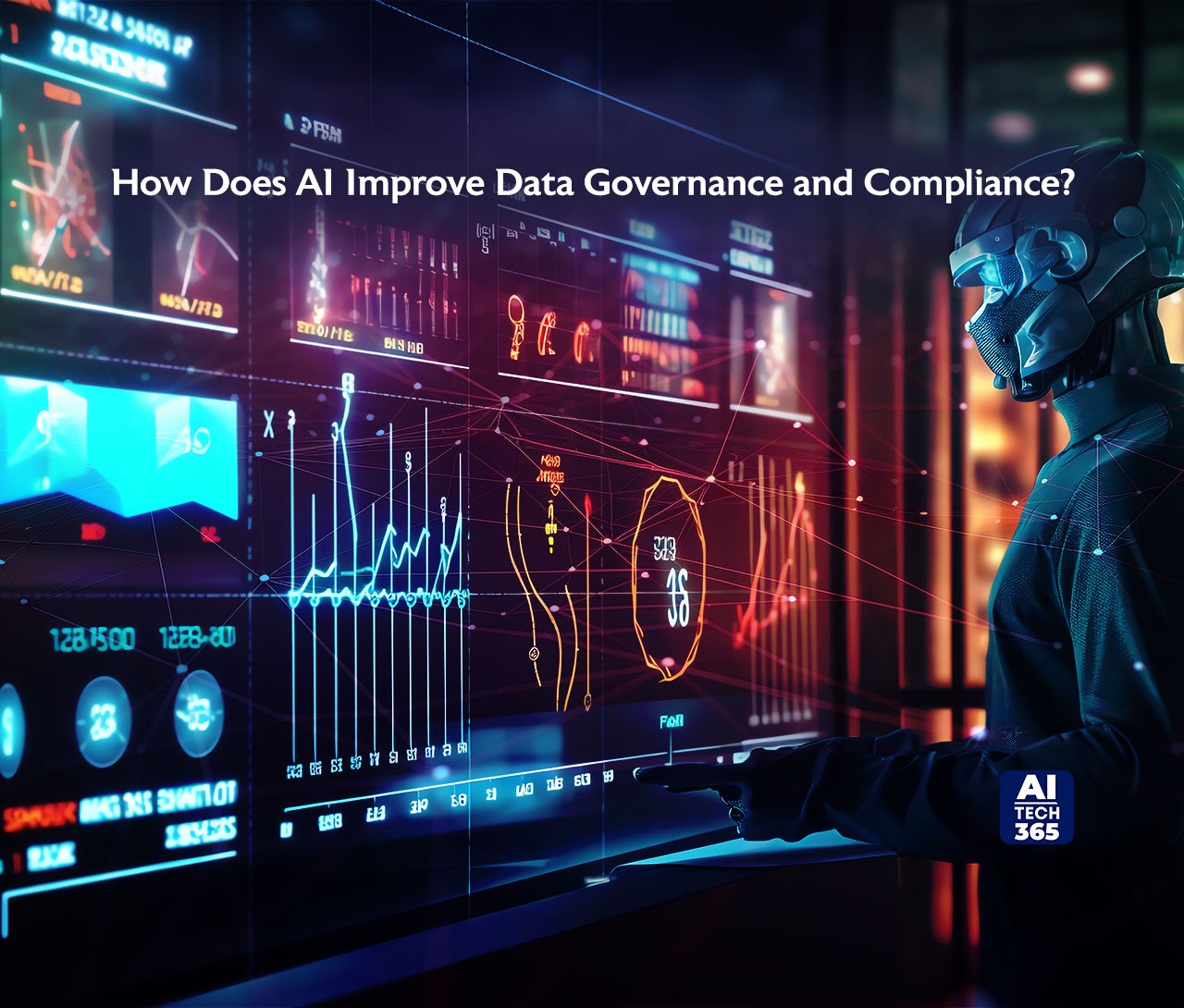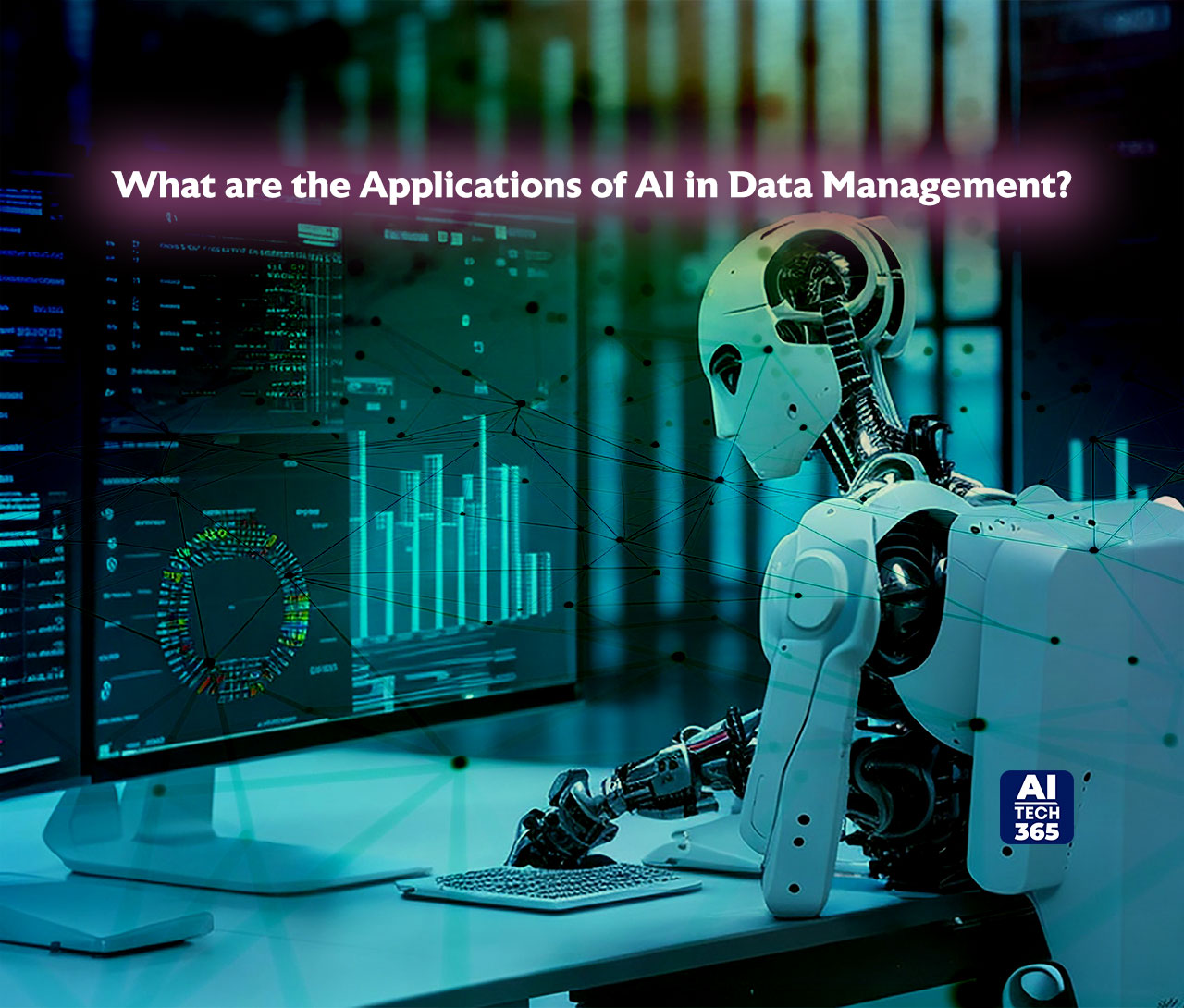The surge in data is undoubtedly a tangible reality. Businesses are generating vast amounts of data at an unprecedented pace, ranging from customer engagements to supplier inputs. However, a pressing issue arises: this inundation of data often becomes a burden rather than a boon.
The manual handling of data is sluggish, susceptible to errors, and notably incapable of keeping pace with the escalating data volume. Here emerges AI data management a groundbreaking approach that unleashes the authentic potential harbored within your data. The market for AI technology is projected to rise to over $1.8 trillion by 2030. Businesses are quickly integrating this technological advancement to solve their challenges. This is exactly what we will be discussing in this article.
What is AI Data Management?
AI data management entails methodically overseeing an organization’s data assets using AI technology to enhance data quality analysis and decision-making. It encompasses all procedures, guidelines, and technical methods used to efficiently collect, organize, store, and utilize data. Integrity, accessibility, security, and compliance are key in corporate data management, where data is collected, stored, recovered, and transformed to ensure accuracy, consistency, and currency essential for regulatory compliance-informed decision-making and competitive advantage.
Ways in Which Artificial Intelligence Improves Data Handling
When it comes to data cleaning, AI algorithms can identify and resolve issues within data sets, such as discrepancies and duplications. By utilizing precise and dependable data, the likelihood of making subpar decisions is significantly reduced.
- Data Noise Reduction: Organizations can capitalize on AI data management to sift through data clutter and extract valuable insights for strategic decision-making, thereby enhancing operational efficiency and cost-effectiveness.
- Handling Missing Data: AI techniques like imputation and predictive modeling are instrumental in estimating missing values, resulting in more precise and valuable data. This in turn minimizes the impact of missing data on research and conclusions.
- Detecting Trends: Harnessing AI-driven analytics enables the identification of trend correlations and hidden intricacies within extensive datasets. This empowers organizations to predict market fluctuations and make informed, proactive decisions.
Automation in data management, facilitated by AI, alleviates the workload of data professionals and expedites processes, ensuring ethical and legal data usage. AI data management merges AI into business data operations, optimizing data quality and assisting enterprises in making precise, effective data-driven decisions.
How Does AI Improve Data Governance And Compliance?
AI acts as a superhero for data governance and compliance in a few key ways:
Automates the Mundane: AI tackles repetitive tasks like data classification, tagging, and access control. This frees up human experts to focus on strategic initiatives and reduces the risk of human error.
Boosts Security and Privacy: AI algorithms can constantly monitor data access patterns and identify anomalies that might signal security breaches. They can also help detect sensitive data and ensure it’s handled according to regulations.
Improves Data Quality: AI can analyze vast amounts of data to identify inconsistencies and errors. This ensures your data is clean and reliable, leading to better decision-making.
Real-Time Compliance Monitoring: AI can continuously monitor data flows and identify potential compliance violations. This allows you to take immediate action and minimize risks.
Predictive Analytics for Future-Proofing: AI can analyze past compliance issues and predict future risks. This proactive approach helps organizations stay ahead of the curve.
What are the Applications of AI in Data Management?
AI plays a vital role in enhancing data retrieval, organization, and utilization. Notable applications of AI data management include:
- AI enables seamless data amalgamation from diverse source formats and structures. ML algorithms adeptly navigate and reshape data, guaranteeing uniformity and enabling thorough analysis. Such technological prowess proves indispensable for sizable organizations managing a multitude of data streams efficiently.
- Harnessing the power of AI and automation to identify and rectify data imperfections like duplicates and inconsistencies becomes seamless. Embracing data cleaning automation not only saves time but also shields against misguided data-driven judgments.
- By utilizing AI data management, the process of categorizing and tagging data becomes much easier, enhancing data retrieval efficiency. This streamlined operation significantly contributes to the ease of managing content and documents.
- AI serves as a vigilant guard, thwarting cyberattacks. By delving into network traffic and user preferences, machine learning algorithms unearth anomalies that may signify a breach in security.
- AI optimizes data storage by shifting less-accessed data to more budget-friendly storage tiers, similar to decluttering your closet for better organization. This practice leads to cost savings due to enhanced data accessibility.
- NLP and AI-powered search engines work together to understand query content, thus improving the retrieval of data for document archives and content management systems.
- AI is proficient in automating data backup procedures, ensuring the regular and secure maintenance of data. Additionally, it significantly contributes to the swift and precise recovery of lost data.
- Data governance and compliance tasks become a breeze with AI by your side. Picture it as your loyal companion in the realm of sensitive data, ensuring GDPR and HIPAA rules are followed to the letter. Data retention policies and audit trails? They’re the superhero cape, delivering a plethora of advantages.
- Scalable AI-powered analytics tools facilitate the discovery of insights and trends within datasets. Harnessing data for informed decision-making and achieving a competitive edge hinges on embracing this essential practice.
- AI takes on a pivotal role in managing the data lifecycle by automating tasks like data creation, storage, archival, and delivery while ensuring compliance with regulations.
- AI is equipped to manage consent forms, oversee data consumption, and offer consumers enhanced control over their data.
AI revolutionizes the management of data operations, enhancing efficiency, precision, and adaptability to increasing data volumes. Enhanced data quality, security, and accessibility foster improved decision-making and the maximization of data asset value.
Can AI Handle Data Processing?
Here’s how AI goes about processing data:
- Data Preprocessing: AI takes care of cleaning, normalizing, and converting data. It addresses issues like missing values, outliers, and inconsistencies to get raw data ready for analysis.
- Data Transformation: AI can convert data into formats that work with specific analytic tools and models. This involves structuring data for machine learning algorithms and statistical analysis.
- Data Analysis: AI excels at tasks like pattern recognition, grouping, and predictive modeling. It helps organizations make data-driven decisions by uncovering hidden insights and patterns in datasets.
- Natural Language Processing (NLP): AI can analyze human language data for tasks like sentiment analysis, translation, and summarization. Through NLP, it can understand, interpret, and synthesize human language, enabling various text-data processing applications.
- Video and Image Processing: AI-powered computer vision can identify objects, recognize photos, and analyze video information. This has applications in the healthcare, security, and production industries.
- Speech Recognition: AI can understand and translate speech, enabling functionalities like virtual assistants, voice-controlled gadgets, and speech-to-text transcription.
- Time-Series Analysis: AI is capable of processing time-series data, allowing organizations to predict future patterns based on past data. This is crucial in fields like finance, weather forecasting, and demand prediction.
- Data Visualization: AI can generate graphs, charts, and dashboards to visualize data, making complex information more understandable for data-driven decision-making.
With these various data processing tools at its disposal, AI data management can effectively handle and analyze massive amounts of data, uncovering valuable insights and facilitating informed decision-making across different industries and sectors.
End Note
AI has truly transformed how organizations manage their data. It provides them with robust tools to automate tasks, enhance security measures, improve data accuracy, and ensure compliance with regulations. By embracing the capabilities of AI, organizations can streamline data governance practices, proactively mitigate risks, and base their decisions on reliable and trustworthy data. In today’s era of extensive data sets, AI data management is essential for organizations to effectively manage and extract value from their complex data landscapes.


